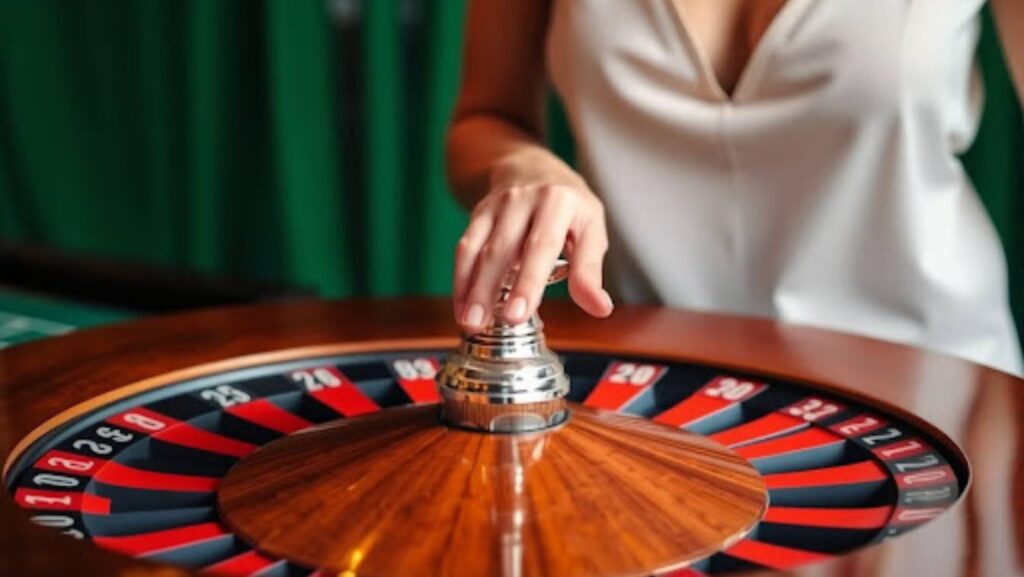
Live roulette demands effective time management for both enjoyment and bankroll preservation. When you bet live on roulette, each decision impacts your results, with session length directly influencing outcome quality. Unlike RNG-based games, live roulette creates a social atmosphere that often distorts time perception, leading players to extend sessions beyond optimal duration.
Poor time management increases exposure to the house edge, causes mental fatigue affecting decision quality, and promotes emotion-based betting rather than strategic play. Creating balance between entertainment and responsible gaming requires deliberate time structuring regardless of whether you play in physical casinos or online live dealer platforms.
Setting Clear Session Parameters
Establish firm boundaries before playing by determining optimal session duration based on your experience level, mental stamina, and bankroll size. Beginners should limit sessions to 30-45 minutes, while experienced players might maintain effectiveness for up to 90 minutes.
Create both win goals and loss limits as natural exit points. Consider targeting a 30-50% bankroll increase as a satisfactory win goal, while setting a 50% loss as your absolute stopping point. These parameters should be non-negotiable regardless of how you feel about recent results or perceived trends.
Essential session parameters to establish:
- Maximum session duration (ideally 60-90 minutes maximum).
- Win goal (30-50% bankroll increase).
- Loss limit (50% maximum bankroll reduction).
- Break schedule (5-minute breaks every 30 minutes).
Time-based exit strategies operate independently of results through predetermined session end times. Set countdown timers and establish specific post-session activities to transition to afterward. Recording session details creates valuable accountability by tracking start/end times and performance patterns across multiple sessions.
Bankroll Management Through Time Control
Integrate time as a critical variable in your bankroll approach by calculating hourly exposure. With 40-60 rounds typically played per hour at live tables, multiply your average bet by this frequency and apply the house edge percentage (2.7% European, 5.26% American) to estimate your theoretical hourly cost.
Adjust bet sizing relative to intended session length. For 30-minute sessions, limit to 2-3% of session bankroll per bet. For 1-2 hour sessions, reduce to 1-2%, and for extended 3+ hour sessions, further reduce to 0.5-1% per bet.
Session phase betting adjustments:
- Initial phase (first 15 minutes): Conservative base bets only.
- Middle phase (15-45 minutes): Potential 25% increase during winning streaks.
- Late phase (45+ minutes): Return to base betting regardless of results.
- Final rounds (last 5 minutes): Lowest volatility bets only.
For multi-day gambling trips, divide your total bankroll by planned playing days, reserving 20-30% for your final day. Statistical deviation naturally increases with time spent playing, with short sessions potentially producing results significantly different from mathematical expectation.
Mental Stamina and Decision Quality
Cognitive performance follows predictable patterns during roulette sessions. The first 20 minutes typically feature heightened alertness and optimal decision-making, followed by sustained performance with minor decline from 20-45 minutes, noticeable concentration deterioration from 45-90 minutes, and significant decision quality degradation beyond 90 minutes without intervention.
Personal peak decision-making windows vary by individual. Morning players (7-11 AM) often benefit from higher analytical capacity, afternoon players (2-5 PM) may experience post-lunch energy dips, and evening players (7-11 PM) frequently report higher risk tolerance. Test different timeframes to identify your optimal mental performance window.
Extend effective playing time through concentration maintenance techniques:
- Micro-breaks between spins with deep breathing and brief stretching.
- Proper hydration with water rather than alcohol or caffeine.
- Periodic table position changes to refresh perspective.
- Brief conversation switches to rest decision-making faculties.
Monitor for warning signs of decision degradation including bet sizing inconsistency, chasing losses, abandoning pre-established systems, emotional reactions to normal statistical variations, and difficulty recalling recent results. When these appear, implement mental refreshment exercises like 30-second visualization breaks imagining non-gambling scenarios, brief sensory shifts focusing on sounds or textures, or 1-2 minute meditative breathing focusing solely on respiration.
Digital Tools and Environment Management
Technology provides valuable time management assistance through specialized applications. Session timer applications offer customizable countdown functionality, vibration alerts at predetermined intervals, and session history tracking. Bankroll tracking software measures win/loss rates per time unit, betting frequency, and performance trends based on duration. Statistical analysis tools provide time-based performance insights helping identify your optimal stopping time based on historical data.
Physical surroundings significantly impact time perception and session management. Position yourself with visibility to clocks or windows, use dealer rotations (typically hourly) as session checkpoints, and limit alcohol consumption which impairs time perception. Schedule water intake at regular intervals, avoid heavy meals before playing, and implement micro-stretching routines between decisions to reduce physical fatigue.
Strategic play should adapt throughout your session. Begin with observation and conservative outside bets during the first 25% of planned duration. During mid-session (26-75% of duration), assess performance against goals and consider strategy modifications – potentially increasing bet size during winning phases or reducing complexity during losing phases. In the final 25%, revert to conservative strategies to preserve gains or maintain reduced sizing rather than chasing losses.
Post-Session Analysis and Improvement
Systematic review after playing creates the foundation for future improvement. Document key time-related metrics including total session duration, points of significant bankroll changes, and intervals between strategy modifications. Compare performance across sessions of different lengths to identify consistent performance decline points and personal warning signs preceding decision deterioration.
Create personalized improvement plans addressing specific time management weaknesses. Identify your primary vulnerability (session length, break resistance, etc.), implement specific countermeasures, and test modified approaches with careful documentation. This process allows gradual extension of optimal playing duration through deliberate practice.
Conclusion
Effective time management transforms roulette from a potentially draining activity into a controlled, enjoyable experience. By establishing clear session parameters, integrating time with bankroll management, maintaining mental stamina, and conducting thorough post-play analysis, you significantly enhance both performance and enjoyment.
Successful roulette players recognize time as their most valuable resource – more important than specific betting systems. Mathematical advantage inevitably favors the house over extended periods, making time discipline the true differentiator between recreational players and those who maximize entertainment value.
Start by addressing your most significant time management weakness, whether setting firm session limits or scheduling regular breaks. Small improvements compound over time, creating more satisfying and potentially profitable roulette experiences.














